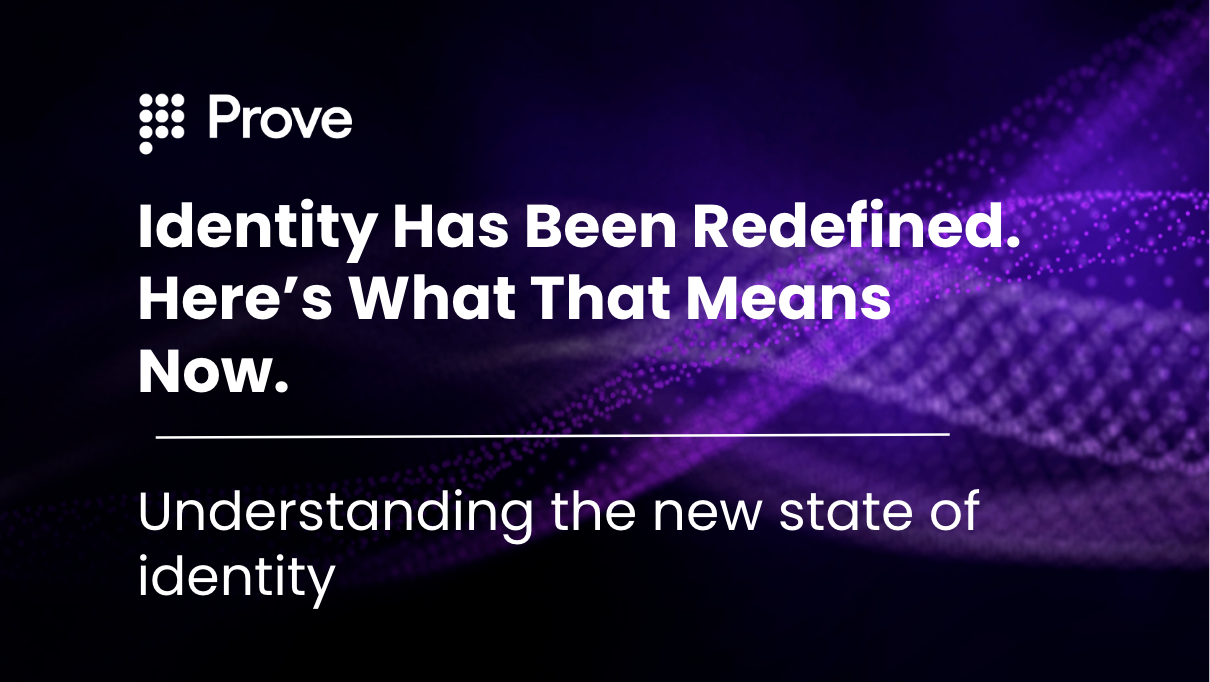The GENIUS Act: Unpacking the Regulatory Nuances for AML/CFT and Sanctions Compliance

The stablecoin industry is on the cusp of a major regulatory shift. The GENIUS Act, recently signed into law, is a significant legislative move, but for fraud experts, the real story lies in what comes next. While the Act signals a commitment to regulatory clarity, a close read reveals that the granular details concerning Anti-Money Laundering (AML), Countering the Financing of Terrorism (CFT), and sanctions compliance won't be found in the legislation itself. Instead, their true impact will emerge from the implementing regulations – a nuance that we know is where the devil truly resides.
The GENIUS Act: A Framework in Search of a Blueprint
At its core, the GENIUS Act categorizes stablecoin issuers as financial institutions for Bank Secrecy Act (BSA) purposes. This classification immediately triggers a comprehensive set of compliance obligations, including:
- Robust AML Programs: The expectation is for stablecoin issuers to develop and maintain an AML program reasonably designed to prevent the financial institution from being used to facilitate money laundering or terrorist financing. This includes internal controls, independent testing, a designated compliance officer, and ongoing training.
- Customer Identification Programs (CIP): Stablecoin issuers will be required to implement CIPs that enable them to form a reasonable belief that they know the true identity of each customer. This is where effective identity verification becomes paramount, as we will discuss shortly.
- Suspicious Activity Reports (SARs): The obligation to identify and report suspicious transactions to FinCEN will be a critical component of compliance. This requires sophisticated transaction monitoring systems capable of detecting anomalous behavior within the unique stablecoin ecosystem.
- Record Retention: Comprehensive record-keeping requirements will be imposed, necessitating secure and immutable storage of transaction data and customer information.
- Sanctions Compliance: Adherence to Office of Foreign Assets Control (OFAC) sanctions programs will be non-negotiable, requiring robust screening mechanisms against OFAC's Specially Designated Nationals (SDN) list and other relevant sanctions lists.
However, the GENIUS Act largely establishes these requirements without prescribing the methods or standards for their fulfillment. This deliberate legislative approach recognizes the nascent and rapidly evolving nature of digital assets. Consequently, the onus will fall on regulatory bodies, primarily FinCEN, to issue detailed implementing regulations that fit digital commerce.
What's Missing and Why It Matters
For fraud experts, this regulatory gap is where the most significant challenges and opportunities lie. We anticipate that these forthcoming regulations will address, among other things:
- Specific Risk-Based Approaches: How will stablecoin issuers be expected to tailor their AML/CFT programs based on their unique business models, customer demographics, and the inherent risks associated with different stablecoin types and usage patterns? Will there be specific guidance on assessing geographic risk in a borderless digital environment?
- Defining "Reasonable Belief" in CIP: What constitutes a "reasonable belief" in knowing a customer's true identity in a digital-native context? Will there be prescriptive requirements for multi-factor authentication, biometric verification, or the use of verifiable digital credentials?
- Transaction Monitoring Thresholds and Typologies: Given the unique characteristics of blockchain transactions (e.g., pseudonymous addresses, rapid transfers), what specific thresholds and typologies will FinCEN expect stablecoin issuers to monitor for suspicious activity? Will there be guidance on tracing funds across different blockchain protocols?
- Interoperability and Data Sharing: How will stablecoin issuers be expected to share information with other financial institutions or law enforcement to combat illicit finance effectively? Will there be mechanisms for secure and compliant data exchange?
- Technological Expectations: While the Act broadly encourages novel methods, will the regulations mandate the use of specific technologies for blockchain analytics, AI-driven anomaly detection, or secure data management?
The answers to these questions will profoundly impact the operational design and technological investments required for stablecoin issuers to achieve compliance. Fraud experts understand that a lack of clarity in these areas can lead to significant compliance gaps and increased vulnerability to illicit activities.
The Indispensable Role of Effective Identity Verification
Amidst this regulatory evolution, effective identity verification offers the foundational layer upon which all other AML/CFT and sanctions controls are built. The GENIUS Act's emphasis on identifying and implementing "novel methods for detecting illicit finance, including digital identity verification and blockchain monitoring," highlights this imperative. Here's why robust identity verification will be pivotal:
- Accurate Customer Identification: Before any transaction occurs, a stablecoin issuer must confidently know who they are doing business with. This goes beyond simple name and address verification and extends to understanding the ultimate beneficial ownership (UBO) where applicable. Sophisticated identity verification solutions can leverage a multitude of data points – government-issued IDs, biometrics, liveness detection, digital footprints, and cross-referencing with reliable third-party databases – to establish a high degree of assurance in an individual's identity.
- Enhanced Due Diligence (EDD): For higher-risk customers or transactions, EDD becomes essential. Effective identity verification solutions can provide the necessary data points and tools to conduct deeper dives into a customer's background, source of funds, and risk profile. This includes ongoing monitoring of identity attributes for changes or red flags.
- Sanctions Screening Efficacy: The accuracy of sanctions screening is directly tied to the precision of identity verification. If an identity cannot be confidently established, the effectiveness of screening against OFAC's SDN list or other sanctions lists is severely compromised. High-quality identity data reduces false positives and ensures genuine hits are not missed.
- Fraud Prevention at the Source: Many financial crimes, from account takeover to synthetic identity fraud, originate from weak identity verification processes. By fortifying the initial onboarding process with robust identity checks, stablecoin issuers can significantly reduce their exposure to various forms of fraud.
- Meeting Future Regulatory Demands: As FinCEN and other regulators issue more prescriptive guidance, those stablecoin issuers with mature and adaptable identity verification frameworks will be best positioned to pivot and meet evolving requirements. This includes the potential for future mandates around verifiable digital identities or decentralized identity solutions.
Preparing for the Unwritten Rules
The GENIUS Act is a huge step towards greater stablecoin and crypto governance, but it is just the beginning. For sophisticated fraud experts within stablecoin organizations, the real work begins now, in anticipating and preparing for the unwritten rules that will soon emerge through implementing regulations.
Rigorous identity verification will enable stablecoin issuers to not only meet their AML/CFT and sanctions obligations and also to build trust, foster innovation responsibly, and ultimately, safeguard the integrity of the nascent digital asset economy. Those who build identity solutions need to be vigilant, engage proactively with regulators, and continue to invest in innovative technologies that will define the future of financial crime prevention.

Keep reading
 Read the article: The Super Bowl Highlights the Scale of Fraud in Online Sports Gaming
Read the article: The Super Bowl Highlights the Scale of Fraud in Online Sports GamingLearn how advanced identity verification helps sports betting operators combat fraud, deepfakes, and AI-driven threats.
 Read the article: Identity Has Been Redefined. Here’s What That Means Now.
Read the article: Identity Has Been Redefined. Here’s What That Means Now.In an era of deepfakes and automated fraud, traditional one-time identity verification is no longer enough. Learn why organizations must transition to continuous, adaptive identity systems to ensure security without sacrificing seamless user growth.
 Read the article: The Death of the OTP: Why Legacy MFA is Failing the Modern Consumer
Read the article: The Death of the OTP: Why Legacy MFA is Failing the Modern ConsumerDiscover why legacy MFA is failing and how Prove Unified Authentication provides a smarter, frictionless alternative. Learn how to replace insecure SMS OTPs with continuous, multi-layered identity assurance that prevents fraud while boosting conversion rates.













